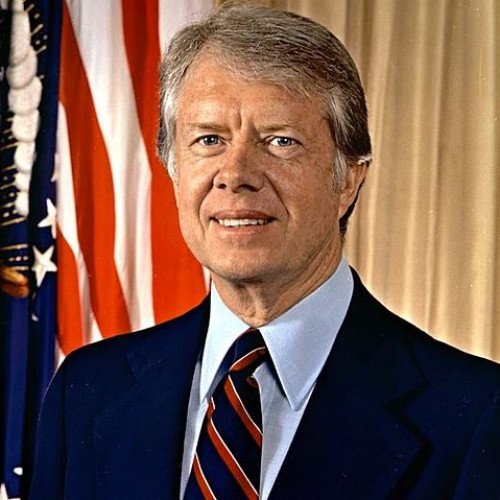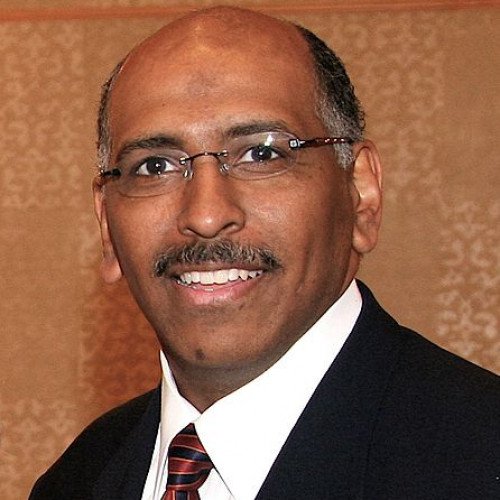Jimmy Carter VS Michael Steele

Jimmy Carter
James Earl Carter Jr. (born October 1, 1924) is an American politician and philanthropist who served as the 39th president of the United States from 1977 to 1981. A member of the Democratic Party, he previously served as a Georgia State Senator from 1963 to 1967 and as the 76th governor of Georgia from 1971 to 1975. Since leaving the presidency, Carter has remained engaged in political and social projects as a private citizen. In 2002, he was awarded the Nobel Peace Prize for his work in co-founding the Carter Center. Raised in Plains, Georgia, Carter graduated from the United States Naval Academy in 1946 with a Bachelor of Science degree and joined the United States Navy, where he served on submarines. After the death of his father in 1953, Carter left his naval career and returned home to Georgia to take up the reins of his family's peanut-growing business. Carter inherited comparatively little due to his father's forgiveness of debts and the division of the estate among the children. Nevertheless, his ambition to expand and grow the Carters' peanut business was fulfilled. During this period, Carter was motivated to oppose the political climate of racial segregation and support the growing civil rights movement. He became an activist within the Democratic Party. From 1963 to 1967, Carter served in the Georgia State Senate, and in 1970, he was elected as Governor of Georgia, defeating former Governor Carl Sanders in the Democratic primary on an anti-segregation platform advocating affirmative action for ethnic minorities. Carter remained as governor until 1975. Despite being a dark-horse candidate who was little known outside of Georgia at the start of the campaign, Carter won the 1976 Democratic presidential nomination. In the general election, Carter ran as an outsider and narrowly defeated incumbent Republican President Gerald Ford. On his second day in office, Carter pardoned all the Vietnam War draft evaders by issuing Proclamation 4483. During Carter's term as president, two new cabinet-level departments, the Department of Energy and the Department of Education, were established. He established a national energy policy that included conservation, price control, and new technology. In foreign affairs, Carter pursued the Camp David Accords, the Panama Canal Treaties, the second round of Strategic Arms Limitation Talks (SALT II), and the return of the Panama Canal Zone to Panama. On the economic front, he confronted stagflation, a persistent combination of high inflation, high unemployment and slow growth. The end of his presidential tenure was marked by the 1979–1981 Iran hostage crisis, the 1979 energy crisis, the Three Mile Island nuclear accident, and the Soviet invasion of Afghanistan. In response to the invasion, Carter escalated the Cold War when he ended détente, imposed a grain embargo against the Soviets, enunciated the Carter Doctrine, and led a 1980 Summer Olympics boycott in Moscow. In 1980, Carter faced a challenge from Senator Ted Kennedy in the primaries, but he won re-nomination at the 1980 Democratic National Convention. Carter lost the general election to Republican nominee Ronald Reagan in an electoral landslide. He is the only president in American history to serve a full term of office and never appoint a justice to the Supreme Court. Polls of historians and political scientists usually rank Carter as a below-average president. Carter's activities since leaving the presidency have been viewed more favorably than his presidency itself. In 1982, Carter established the Carter Center to promote and expand human rights. He has traveled extensively to conduct peace negotiations, monitor elections, and advance disease prevention and eradication in developing nations. Carter is considered a key figure in the Habitat for Humanity charity. He has written over 30 books, ranging from political memoirs to poetry, while continuing to actively comment on ongoing American and global affairs such as the Israeli-Palestinian conflict.
Statistics for this Xoptio

Michael Steele
Michael Stephen Steele (born October 19, 1958) is an American conservative political commentator, attorney, and former Republican Party politician. Steele served as the seventh lieutenant governor of Maryland from 2003 to 2007; he was the first African-American elected to statewide office in Maryland. As lieutenant governor, Steele chaired the Minority Business Enterprise task force, actively promoting an expansion of affirmative action in the corporate world. Steele also served as chairperson of the Republican National Committee (RNC) from January 2009 until January 2011; he was the first African-American to serve in that capacity.In the 1990s, Steele worked as a partner at the international law firm of LeBoeuf, Lamb, Greene & MacRae and co-founded the Republican Leadership Council, a "fiscally conservative and socially inclusive" political action committee. Steele also made numerous appearances as a political pundit on Fox News and other media outlets prior to running for public office. He made an unsuccessful run in the 2006 U.S. Senate election in Maryland, losing to Democrat Ben Cardin. From 2007 to 2009, Steele was chairman of GOPAC, a 527 organization that trains and supports Republican candidates in state and local elections. After serving one term as RNC Chairperson from 2009 to 2011, he lost his bid for a second term and was succeeded by Reince Priebus. Since 2011, Steele has contributed as a regular columnist for online magazine The Root and as a political analyst for MSNBC. In 2018, he became a Senior Fellow at Brown University's Watson Institute for International and Public Affairs.In 2020, he formally endorsed Joe Biden for the presidency, after previously starring in an advertisement aired by The Lincoln Project.